Meals With a Taste of Death...How Did aid Convert to Deadly Poison in Northern Syria?
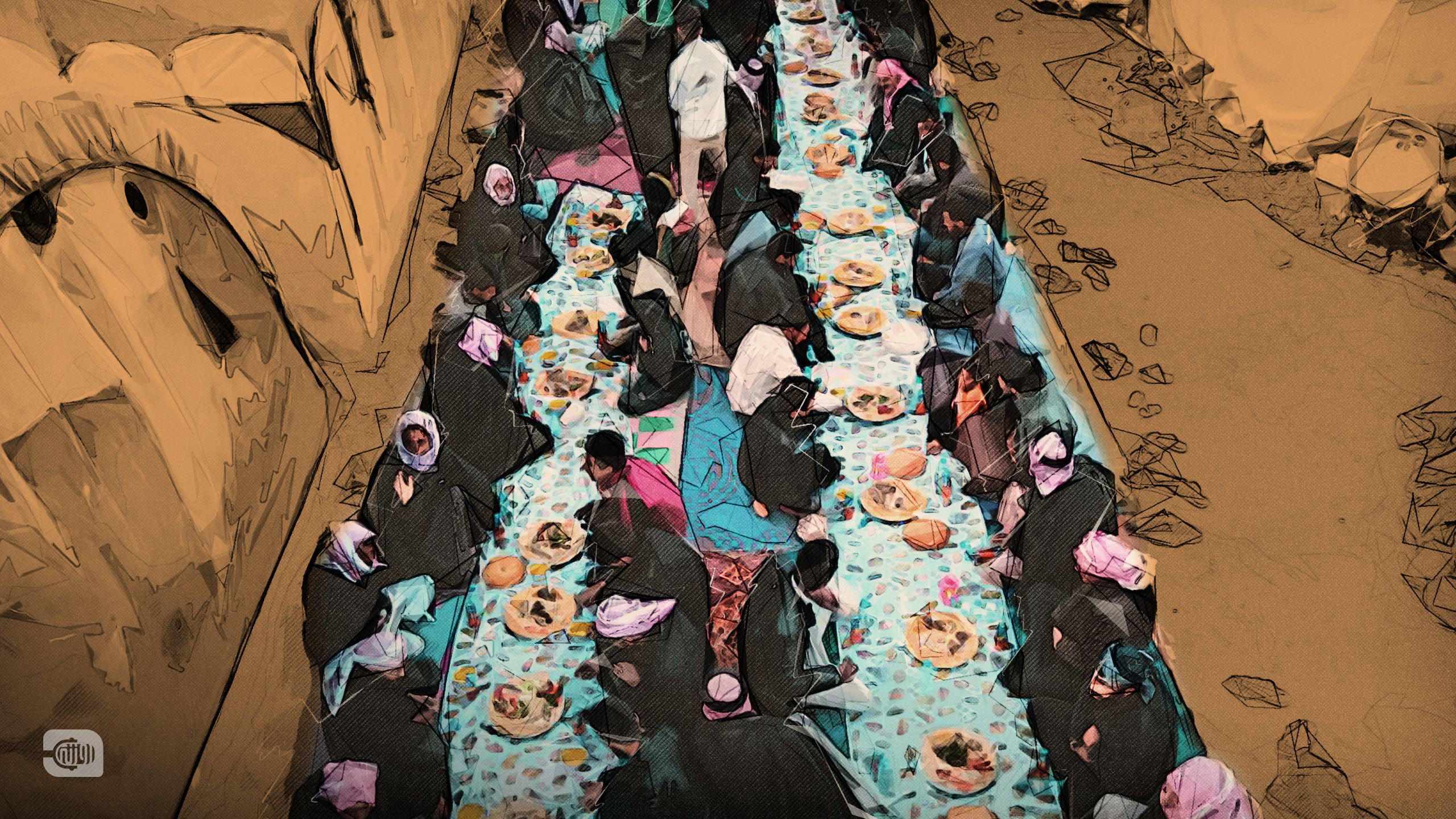
A relief meal may turn into a deadly poison due to reasons that seem multiple and complex as a result of the conditions of war and the state of poverty and living in homes and infrastructure that already lack health safety standards.
In this investigation, Rozana sheds light on the hidden reasons behind the recent cases of poisoning which repeated in northern Syria, especially within the camps, besides the difficult conditions experienced by the population due to that. These conditions led to their indifference to health risks as a result of their hunger and preoccupation with the search for what would keep them alive.
Repeated Poisoning Cases
Recurring annual and weekly poisoning cases occur in the camps especially the Bin Saree camp of mud houses located in Salqin, west of Idlib at the end of last April, according to testimony by one of its officials, Amir al-Hassan.
At that time, about 50 children between the ages of 12 and 13 were subjected to poisoning, according to Al-Hassan who assured Rozana that "the reasons are unknown and no serious investigation has been conducted into these incidents or to reveal their circumstances".
The official of the Bin Saree camp considered that "in official statements, there are many fallacies, which contradict the truth of what happened, most notably what was reported about the main causes of poisoning cases in northern Syria".
"The account of the Syria Civil Defence and the Response Coordination Group confirmed last April that the poisoning cases that took place in various locations in Idlib countryside, including Bin Saree camp, were due to the spoilage of meals provided by relief organizations, due to their poor preservation under high temperatures with lack of electricity and the simplest means of refrigeration.
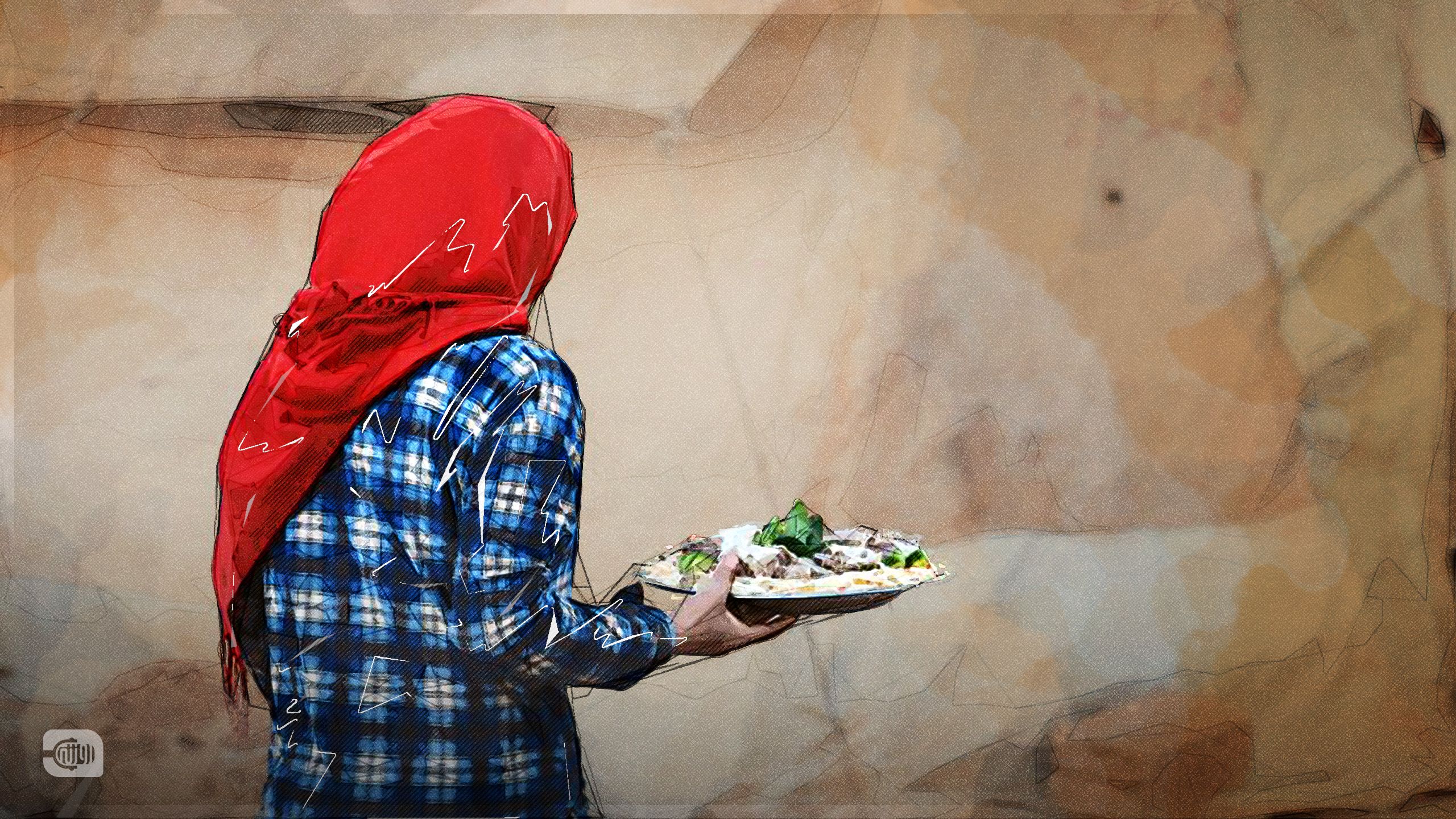

Causes of Poisoning
""The possible causes behind poisoning cases may be due to several factors: the philanthropist’s meals, other foods provided by the residents of the area, polluted juices, water that may have been contaminated by sewage or by rodents that sometimes ravage plumbing and pipes," Amir al-Hassan told Rozana.
The camp official complained that "the camp residents suffer from mud, humid, dusty houses that almost have no ventilation. This leads to food spoilage and causes respiratory diseases to all its residents, besides the risk of their collapse due to weather factors after a long and severe winter that the entire region faced".
In his statement to Rozana, the administrator of the Bin Saree camp affirmed the importance of carrying out serious investigations that amount to the seriousness of the situation. This can be conducted by taking samples of food and from those who were poisoned to find out the real causes behind this and to work to address this problem, especially since the risk of mixing the sewage with drinking water still exists.
Amir al-Hassan ruled out that the meals provided by a philanthropist were the direct and main cause of the poisoning.
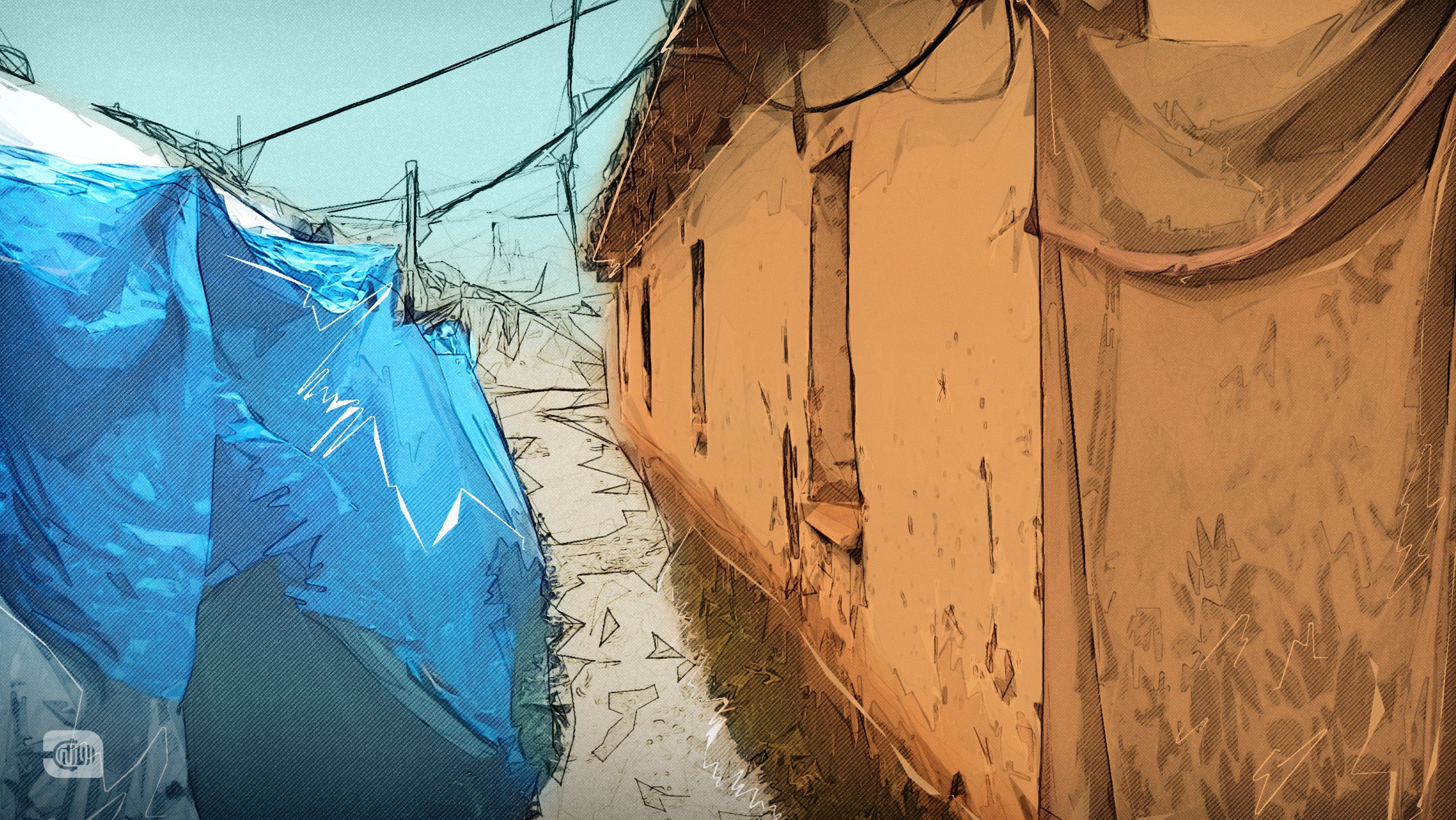
The Role of Associations and Organizations
According to Yaser Watti, an employee of the "Hayrat" charity association, organizations adopt several varied standards to preserve foodstuffs. Failure to commit and apply these standards may cause poisoning and spoilage of some food rations and meals, especially those meals that are basically of low quality.
Watti said that cases of poisoning usually occur due to meals or meat that the donor may be late in distributing.
Yaser added: For example, "the donor prepares the meals in the morning and distributes them in the afternoon, which causes spoilage in foods, the same applies to the meat that may be delayed in distribution".
""Sometimes, the necessary precautions are not applied to preserve meat during the process of their distribution, for example, the meat is not put in a refrigerated private car, or at least putting pieces of "ice" over them to prevent it from spoiling," according to Yaser.
According to the employee of the "Hayrat" charity association, the same applies to the "garlic cream" that is also distributed with the meals, where heat also affects it if it is delayed during the distribution process.
Generally, camp administrations are not responsible for storing relief foodstuffs or preserving them, rather they conclude a contract or memorandum of understanding and register the lists of beneficiaries to ensure their distribution to the neediest groups, according to the director of Bin Saree camp. He confirmed that only philanthropists (initiatives of donors) provided such aid to his camp and neighbouring areas during the past months in which the poisoning incidents occurred.
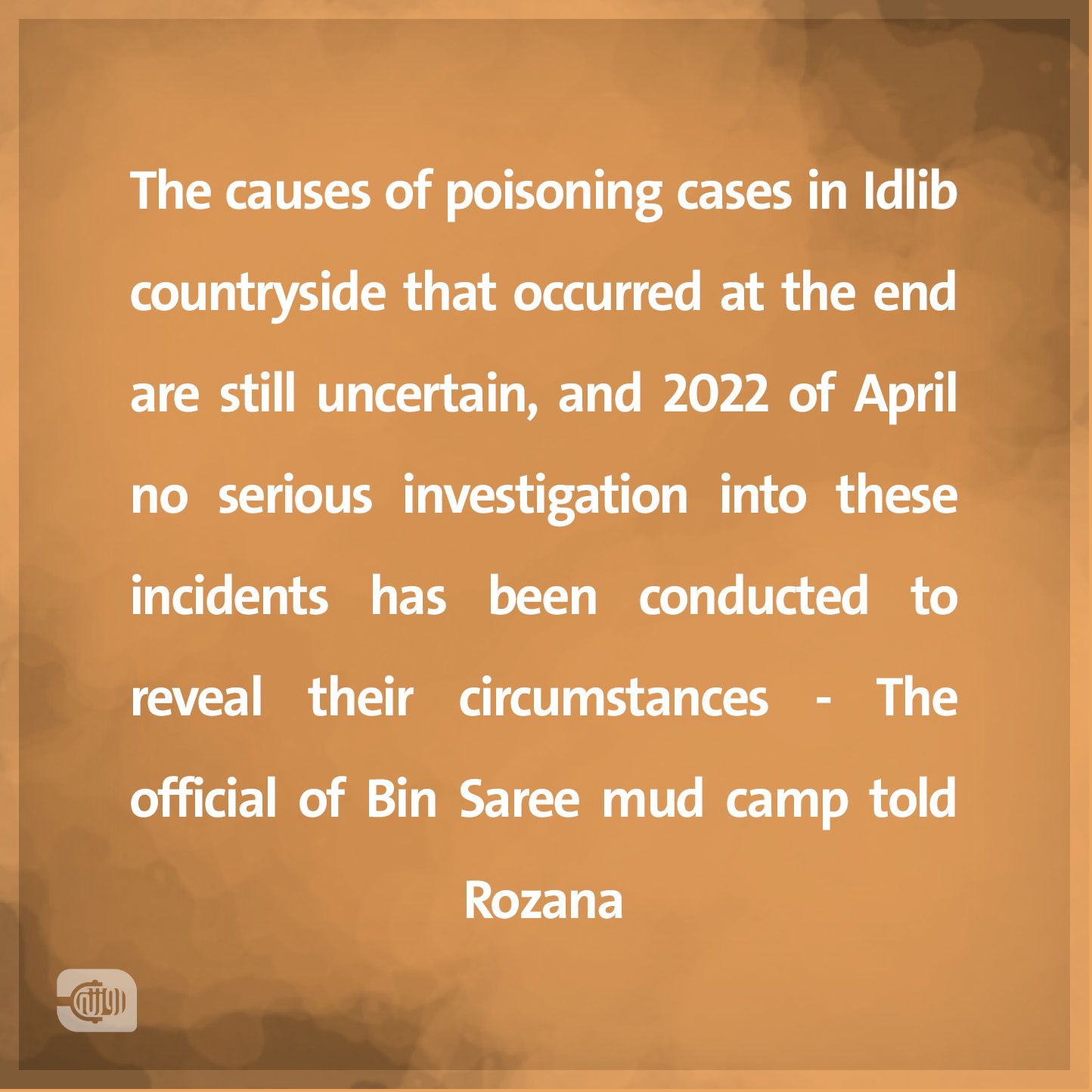
Bin Saree' mud camp
Bin Saree' mud camp
Causes of Foodstuffs Spoilage
Khaled Al-Rifai from UFUK for Relief and Development association stated that the causes of spoilage of meals and meat in the first place are poor storage from the source supplier.
"In that case, the logistic department must inspect and check the foodstuffs properly received from the supplier before receiving them and transferring them to the organisation's ownership," Al-Rifai said to Rozana.
The coordinator of the Syria Office at UFUK for Relief and Development association added that the wrong transport of goods at high temperatures also leads to their spoilage.
According to Al-Rifai, it is necessary to choose an appropriate means of transportation, such as refrigerator trucks to transport meat and meals.
"The wrong preservation of the foodstuffs leads to their spoilage and damage, and drying meat at high temperatures without cooling it may cause spoilage in a high percentage". UFUK's coordinator added.
Al-Rifai pointed out that it is necessary to pay attention to the mechanism of packaging foodstuffs and meat, especially cooked meals and those covered in plastic bags, which are more likely to be perishable if exposed to heat.
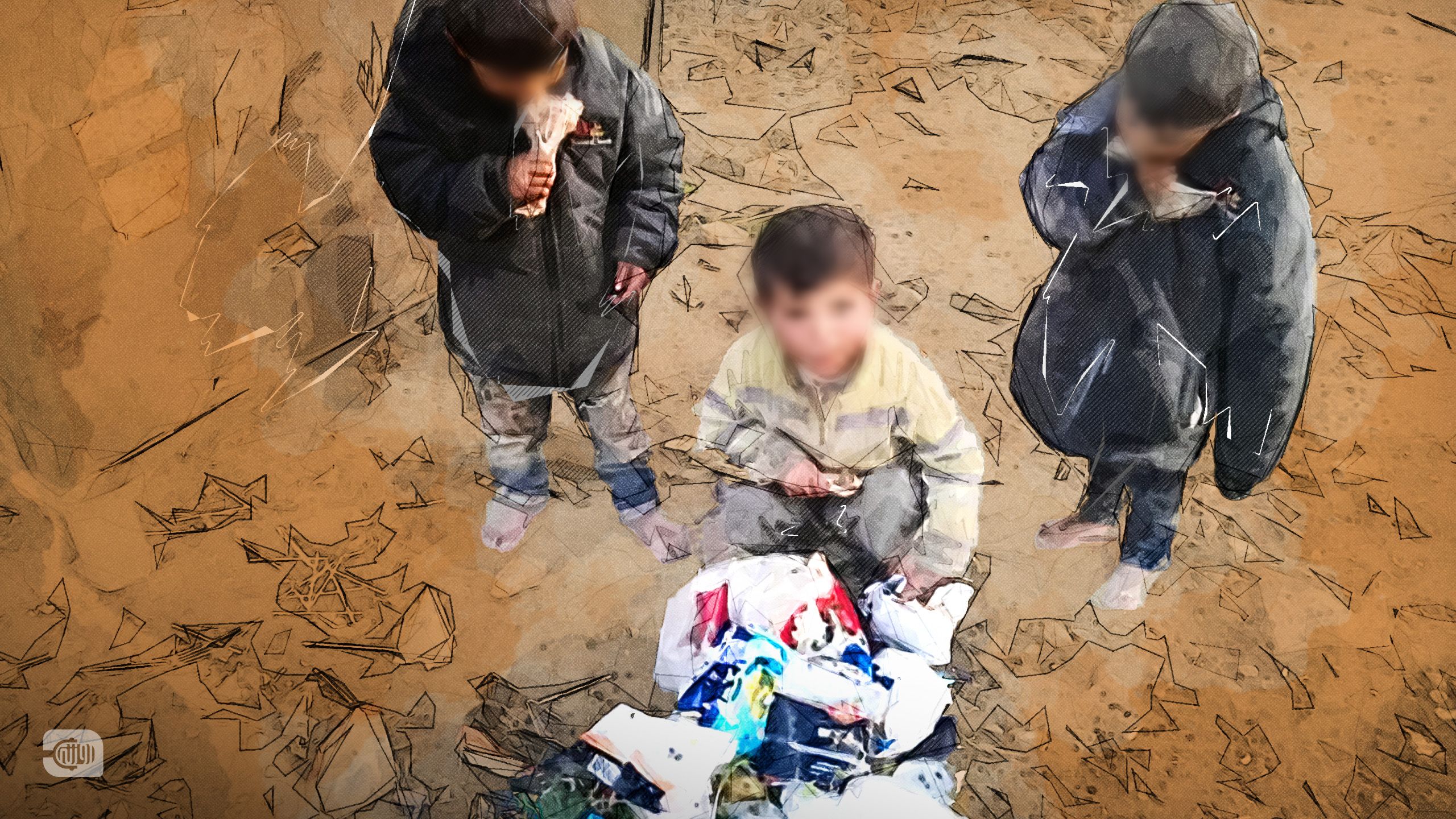
Symptoms of Poisoning
Khalil, a resident of Bin Saree camp, told Rozana what happened with his two sons, Obeida (13 years) and Youssef (12 years). He talked about how they were poisoned after they ate food presented in a mosque during the last month of Ramadan.
Like other poisoned cases, Obeida and Youssef suffered from diarrhoea, loss of consciousness, dizziness, allergy and high temperature. Their father stated that the reasons for this remained unknown to him.
According to Amir Al-Hassan, the same meals were distributed in about seven locations other than Bin Saree camp, however, the poisoning occurred only within this camp. He considered that this "refutes the allegation that the meals or their poor preservation were the direct cause of the poisoning cases, especially since the investigations and research into the case were not serious and accurate," as he put it.
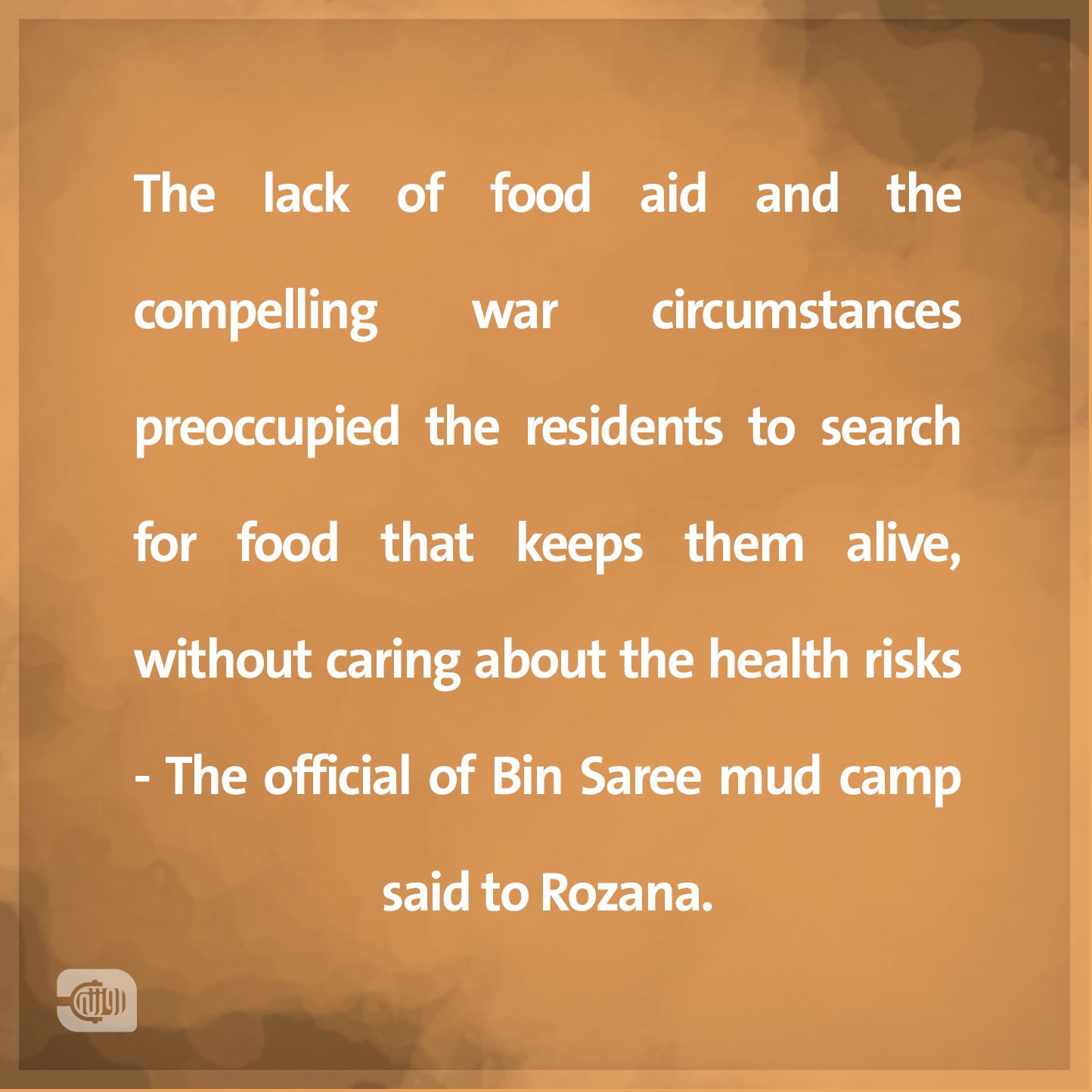
Bin Saree' camp official for Rozana
Bin Saree' camp official for Rozana
According to what the Syria Civil Defence told Rozana: "Women and children were the largest categories of the poisoning cases. Some cases suffered from complications led to providing them with intensive medical care. Symptoms were varied including fatigue, vomiting, high temperature and diarrhoea with stomach cramps".
The Mechanism of Food Preservation and Distribution Adopted by The Organizations Operating in Northern Syria
Yasser Watti, an employee of the "Hayrat" charity association, confirmed that food rations do not remain in the storage warehouses for more than a month, and during that period the organizations provide them to the beneficiaries.
According to Watti, the associations usually put these foodstuffs in a high place above the ground so that the sunlight does not enter inside, to preserve these foodstuffs and prevent their spoilage.
According to the employee of the "Hayrat" charity association, the donors sometimes provide low-quality food rations, so the organizations try to preserve these foodstuffs in order not to be exposed to decay, moisture, or any other accident that might spoil them.
According to Yaser, the operating organizations and associations provide foodstuffs every month after putting materials to prevent rodents and insects from entering the warehouses.
In his interview with Rozana, Khaled Al-Rifai, the coordinator of the Syria Office at UFUK for Relief and Development (based in Turkey), considers that each foodstuff has a special method of preservation and storage.
In UFUK for Relief and Development, the Monitoring and Evaluation Department supervise this task to ensure that food or non-food items are preserved optimally and ensure that they reach the beneficiaries with high quality.
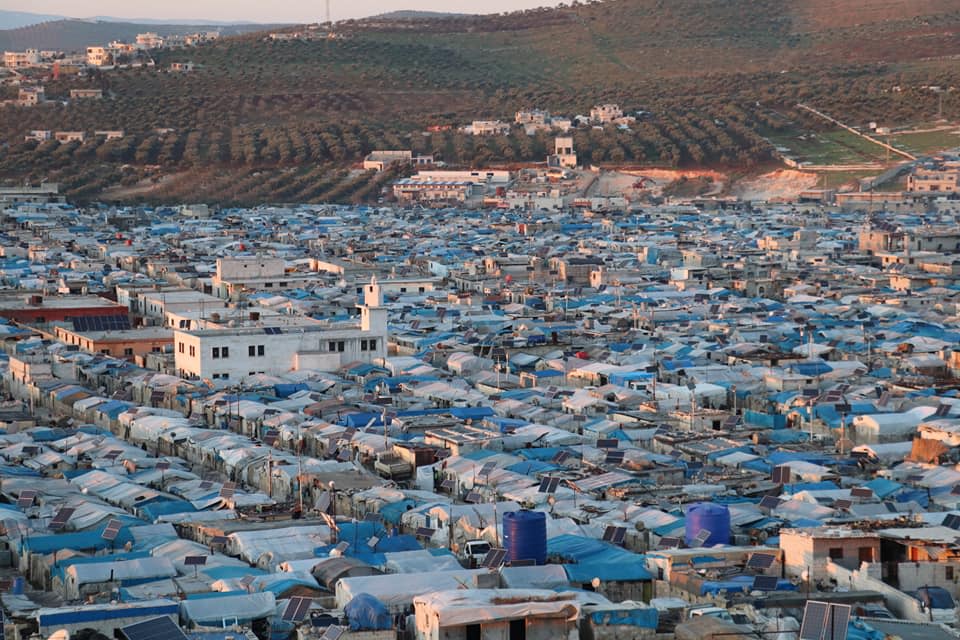
Camps in the north of Syria
Camps in the north of Syria
As for cooked meals and meat, Al-Rifai said that they are not kept in warehouses, but rather directly transferred from suppliers to refrigerator trucks that preserve the foodstuffs from spoilage throughout the distribution period of meat and cooked meals to the beneficiaries.
In the event of being forced to postpone the distribution process, the foodstuffs are kept in large refrigerators that operate 24 hours a day to keep the foodstuffs from spoiling, according to the coordinator of UFUK for Relief and Development.
According to Al-Rifai, UFUK for Relief and Development adopt specific and written policies for the storage and preservation of foodstuffs, it also conducts professional training in this regard, and this significantly contributes to reducing the possibility of foodstuffs damage by a large percentage.
What Is the Opinion of Health Authorities?
The areas in which poisoning incidents occurred and are repeated individually up till now are located militarily under the control of Tahrir al-Sham, where the "Syrian Salvation Government" extends its administrative influence over it along with Idlib governorate and the western countryside of Aleppo.
The task of monitoring the validity of foodstuffs is considered the responsibility of the General Directorate of Trade and Supply of the Syrian Salvation Government operating in the city of Idlib and its northern countryside.
This directorate is supposed to check the validity of the foodstuffs whether meat, legumes and meals provided by restaurants, and ensure that their expiry dates are valid.
The Ministry of Health of the Syrian Salvation Government said in a statement on April 25 that it had opened an investigation into the poisoning incidents, and had sent a committee to several medical centres to detect the causes of the poisoning cases.
The ministry's statement quoted the director of one of the camps that witnessed these poisoning cases (the ministry did not specify his identity or the name of the camp) his saying that "the meals provided were valid, with evidence that the children who ate them immediately upon arrival did not show any symptoms of poisoning".
In late April, temperatures in Idlib exceeded 30 degrees Celsius, which leads to the spoilage of the meals distributed to the displaced people, and these incidents have repeated in the summer of past years, according to what the Directorates of Health and Civil Defense said.
After great difficulty, Rozana managed to contact "Durid al-Rahmoun", the official of the Primary Health Care Department in Idlib Health Directorate, who confirmed that the causes of the poisoning that occurred in late April were due to meals that had spoiled due to poor preservation or storage in the absence of cooling means and under high temperatures.
"In more than 20 camps, we have detected nearly 100 cases of poisoning, and the civil defence and ambulance have been directed to transport the injured, treat them and follow up their condition until they are discharged from hospitals," Al-Rahmoun said to Rozana. He pointed out that there is no need for criminal investigations into these accidents because the reasons are clear.
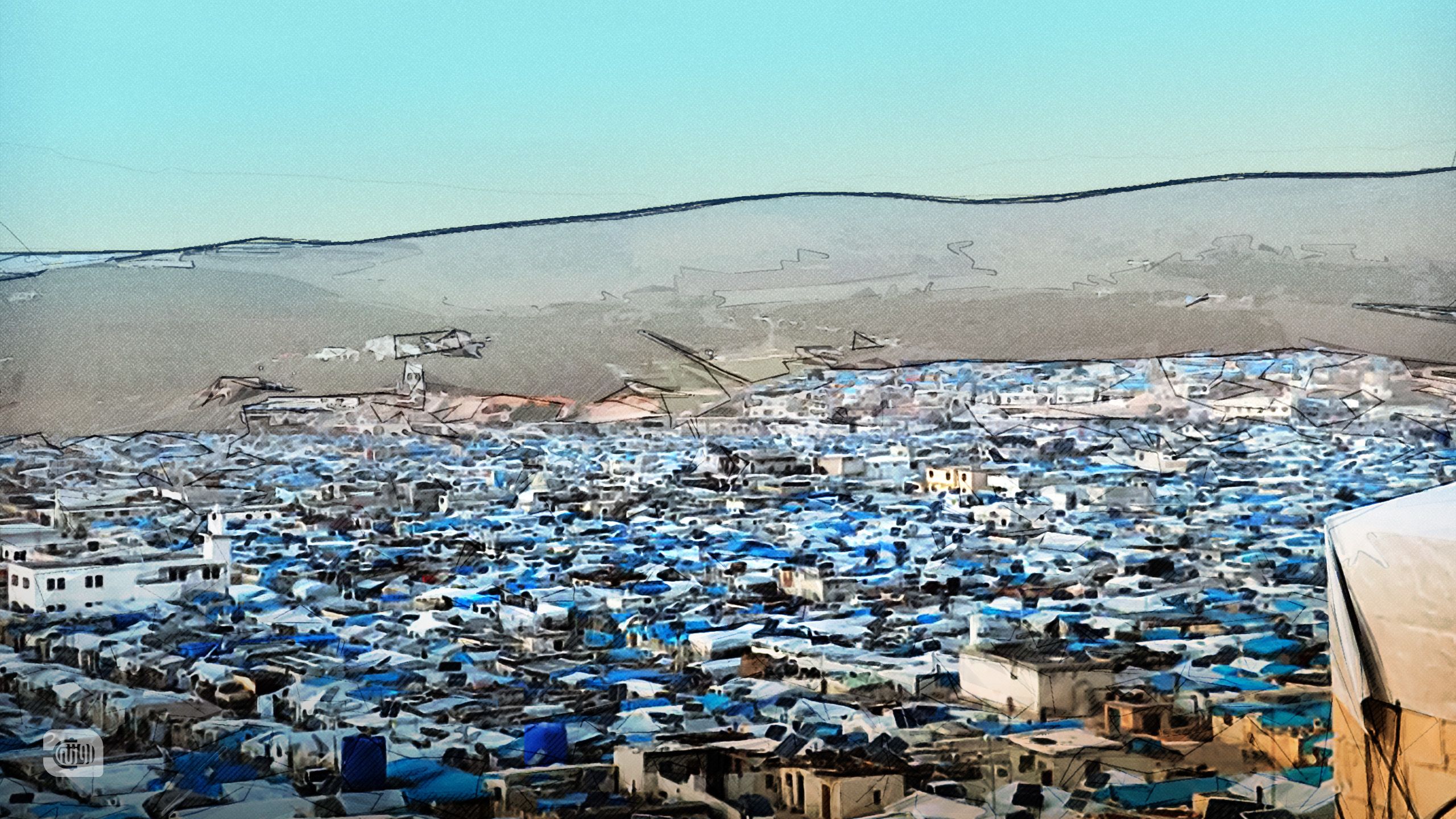

مخيمات الشمال السوري - مواقع التواصل
مخيمات الشمال السوري - مواقع التواصل
The Response of Humanitarian Organisations
Amir al-Hassan expressed the concerns of the residents of camps by saying: "People neglect the dangers of poisoning because they seek to make living, shelter and a decent life for their children." With a broken heart, he says expressions that many camp residents and displaced people repeated: "feed me even if it is a poison".
"The needs are greater than the response capacity," said Abdul Ghani Al-Arian, Rozana's reporter in Idlib while quoting statements by relief organizations operating in north-western Syria.
Food is at the top of aid items that reach the region, while the Response Coordination Group confirms, in its latest data, that more than 2 million people have been deprived of food aid.
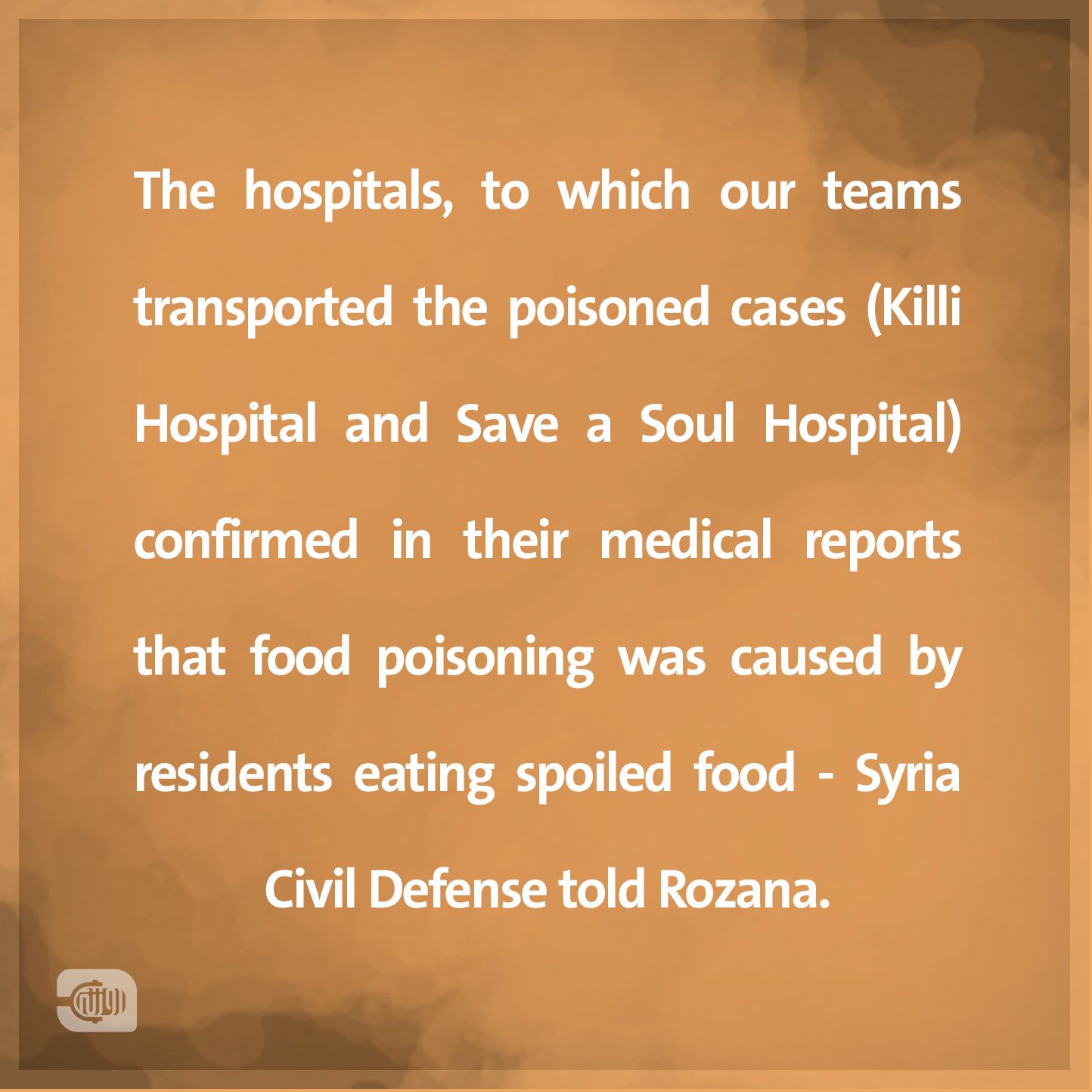
Syrian Civil Defense
Syrian Civil Defense
In its latest reports, the Response Coordination Group pointed out that bread subsidies in more than 650 camps have ended, and more than one million people have been deprived of obtaining bread daily, especially after the cut of the subsidized bread for several months.
Many of the camps located around the city of Salqin complain of the lack, and sometimes absence, of food aid. These camps include the Jamiyya camp located in the middle of Salqin, Safsafa, Al Taakhi and the mud Bin Saree camp located west of Idlib.
In the outskirts of Salqin, dozens of organizations are operating to respond to the needs of the camps, such as the Irish GOAL organisation, RC and Ihh, all of which provide food rations as part of their programs. However, their aid is described as scarce and not commensurate with the amount of the needs, according to confirmations by some residents of the area.
"In the sites of the return of the displaced people, the humanitarian organizations have not yet implemented any real projects because these areas are considered dangerous and projects cannot be implemented in," said a statement by the Response Coordination Group on April 18, 2022.
The employee of the "Hayrat" charity association, Yasser Watti, linked the lack of aid to the political position, which he described as regressive towards the Syrian issue, which affected the files of the displaced people and refugees, according to what he said to Rozana.
According to the United Nations High Commissioner for Refugees (UNHCR), there are about 2.7 million displaced people, out of 4 million people in Idlib, who need humanitarian assistance, while the poverty rate exceeded 90 per cent, and the burdens have increased due to the global increase of prices after the Russian war in Ukraine.
